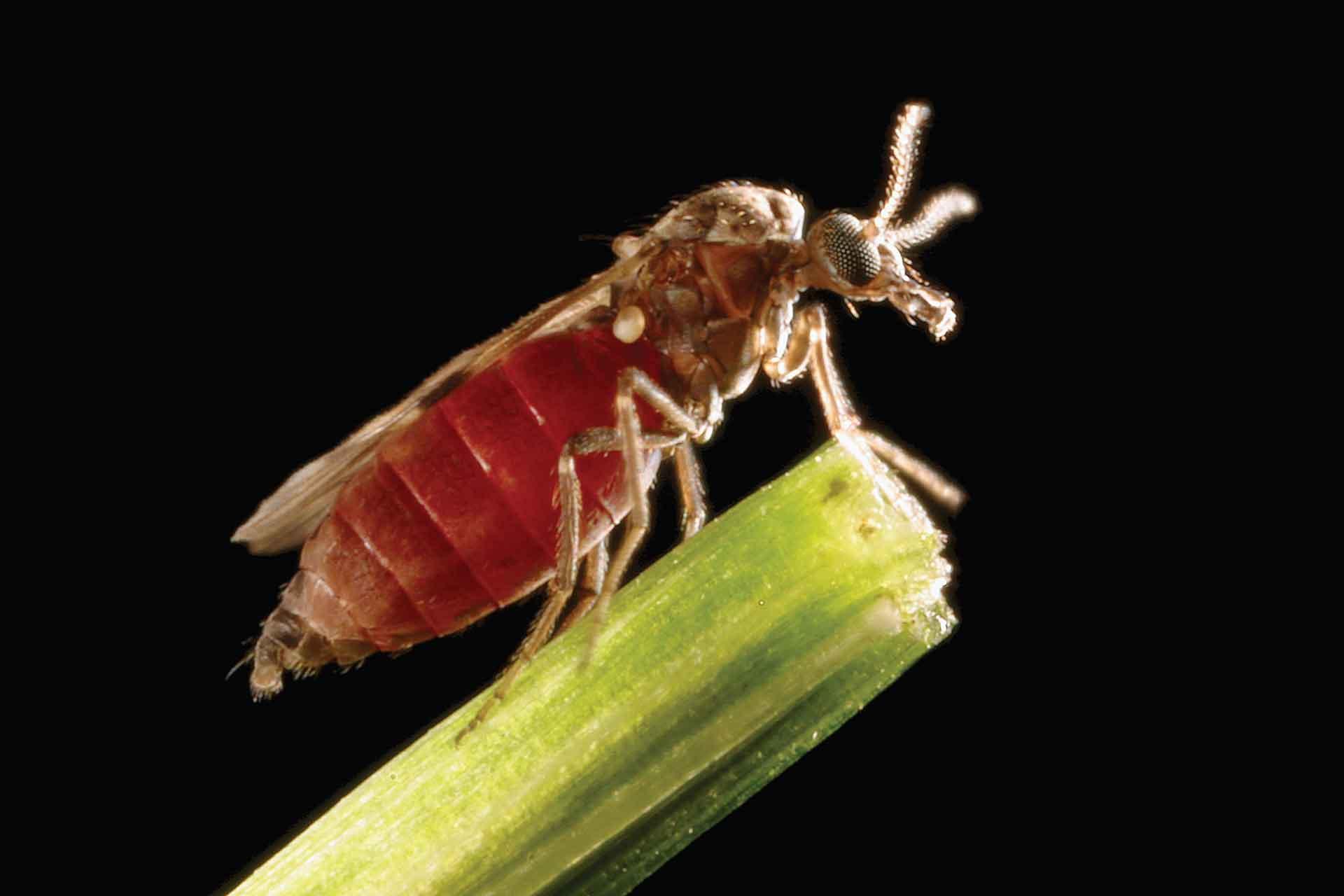The Pirbright Institute is to work with scientific partners to establish a centre where experts tackle diseases spread by insects, ticks and mites.
The £1.5m One Health Vector-Borne Diseases Hub is led by Imperial College London and funded by Defra and the Biotechnology and Biological Sciences Research Council (BBSRC), part of UK Research and Innovation (UKRI).
It brings together researchers from Imperial College, Pirbright, the London School of Hygiene & Tropical Medicine, the University of Liverpool and the UK Centre for Hydrology & Ecology.
Vector-borne diseases (VBDs), in which infection is spread by insects, ticks, and mites, affect the health of humans, animals, and plants.
They include familiar diseases like Lyme disease, bluetongue, and louping ill, which impact livestock, as well as emerging threats like West Nile virus and Usutu virus.
With changing climates, vectors are expected to expand into more temperate regions where traditionally we have not had to defend against these infections.
This past summer, for example, Paris had to fumigate to stop an outbreak of dengue, a disease which is normally confined to tropical regions. Over the next 20 years, the risk from these types of infections is predicted to increase in the UK.
Preventing and controlling the spread of these diseases however can be difficult, as the pathogens’ lifecycles often involve several domestic and wild animal species, and they can be very sensitive to environmental conditions.
A ‘One Health’ approach considers the impact of infections that occur in both animals and humans in an interdisciplinary way that encompasses an understanding of the role of the environment and global change.
Co-Investigators Dr Christopher Sanders and Dr Marion England from Pirbright, said: “Prediction and mitigation of VBD outbreaks requires diverse data from multiple disciplines. The Hub will link the VBD research community to resources and expertise to facilitate One Health approaches to combat these increasing threats to animal and human health.”
Principal Investigator for the Hub Dr Lauren Cator, from the Department of Life Sciences at Imperial College London, said: “To respond to vector-borne diseases we need to be able to rapidly share data and expertise about humans, animals, the vector species which transmit pathogens between them, and the environment. This project will provide new ways for the UK community to share data and support the development of new networks for using that data to tackle this emerging challenge. We are well-positioned to prepare ourselves for a future spillover or emergence event.”
In its initial phase, the Hub will focus on building infrastructure to access and disseminate data that is currently in separate silos. For example, the researchers aim to create a single access point for data relevant to agricultural animals or humans in a health context, and data on genetics and epidemiology (disease spread dynamics).
One use of the Hub will be to support those who forecast disease risk. Co-Investigator Dr Steven White, from the UK Centre for Ecology & Hydrology, said: “VBDs pose a significant threat to humans and animals both now and in the future. To understand these risks we need to build, parameterise, and validate cutting-edge models. This new data hub will help speed up this process and allow us to disseminate our results quickly and efficiently to the community.”
The project's second aim involves establishing crucial relationships and networks across the UK. This ensures that when an individual makes a discovery, they know the appropriate contact to reach out to.
The Hub’s leaders plan to conduct training sessions and events, to develop a web platform in collaboration with ArcTech Innovation, that facilitates connections between individuals in academia and industry, and to enhance communication within key governmental sectors.
